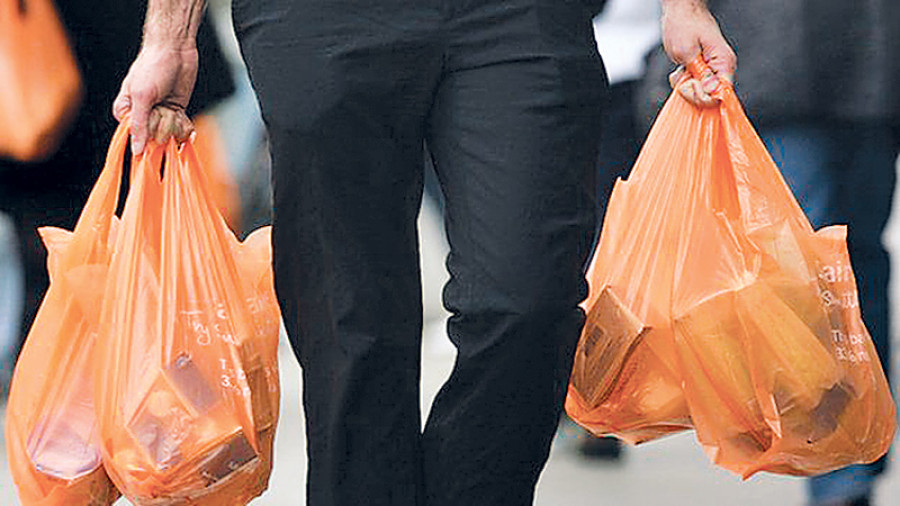Money
Plastic bag manufacturers urge govt to rethink ban
Plastic bag manufacturers have urged the government to rethink its decision to impose a blanket ban on the use of toxic plastic and propylene bags.
Lila Ballav Ghimire
Plastic bag manufacturers have urged the government to rethink its decision to impose a blanket ban on the use of toxic plastic and propylene bags.
They claimed that the ‘sudden and unexpected’ restriction on the use of plastic products had jeopardised the survival of more than 30 plastic factories in the Morang-Sunsari Industrial Corridor and the jobs of hundreds of workers.
The manufacturers also said that they had spent millions of rupees on machinery and equipment which likely would have to be scrapped.
The government’s budget statement for fiscal 2016-17 has announced a blanket ban on the use of plastic and propylene bags due to their undesirable impact on public health and the environment.
Last year, the government had forbidden plastic bags in the Kathmandu Valley and punished those involved in their production, sale, distribution and use. However, plastic bags are still around as the government has not been able to monitor the market strictly.
Shiva Shankar Agrawal, president of the Morang Merchant Association,
argued that the government should compensate the industry for its losses and provide relief to the workers who will be losing their jobs.
The budget statement has encouraged plastic manufacturers to switch to other products by promising to waive value added tax on new machinery that would need to be imported. Manufacturers who give up plastic products and start another enterprise will have to pay 1 percent customs duty.
“The government should have informed us in advance about the decision. We were not consulted or given adequate time to secure our investment. Why did the government allow us to keep producing plastic products, buy new equipment and import raw materials when it knew that the industry would be shut down?” said Agrawal, adding that the livelihoods of many would be affected by the decision.
Agrawal said that the ban should be lifted partially and plastic manufacturers should be allowed to carry on their business in some way as banning production outright would hamper other businesses like noodles, biscuits and other fast foods and processed foods and even construction materials like cement.
“It is not possible to stop production because along with the factory owners,
poor workers will also lose their jobs.”
Nanda Kishore Rathi, proprietor of Bagmati Plastics, said the decision would affect millions in investment. “It’s not a right decision. The government did not even give us time to look for alternatives. We are worried about our investment,” said Rathi.
According to plastic manufacturers, there are at least 30 plastic factories in Morang and Sunsari districts, and each of them provides employment to more than 30 people.
Plastic manufactures also fear possible challenges in collecting outstanding payments from their dealers. They are worried that their customers may ignore the bills after the ban.
“We have asked all the plastic manufactures to submit their balance sheets. We are left with no choice but to launch a unified protest against the decision,” said Som Adhikari, acting secretary of the Morang chapter of the Federation of Nepalese Chambers of Commerce and Industry.




 22.12°C Kathmandu
22.12°C Kathmandu















